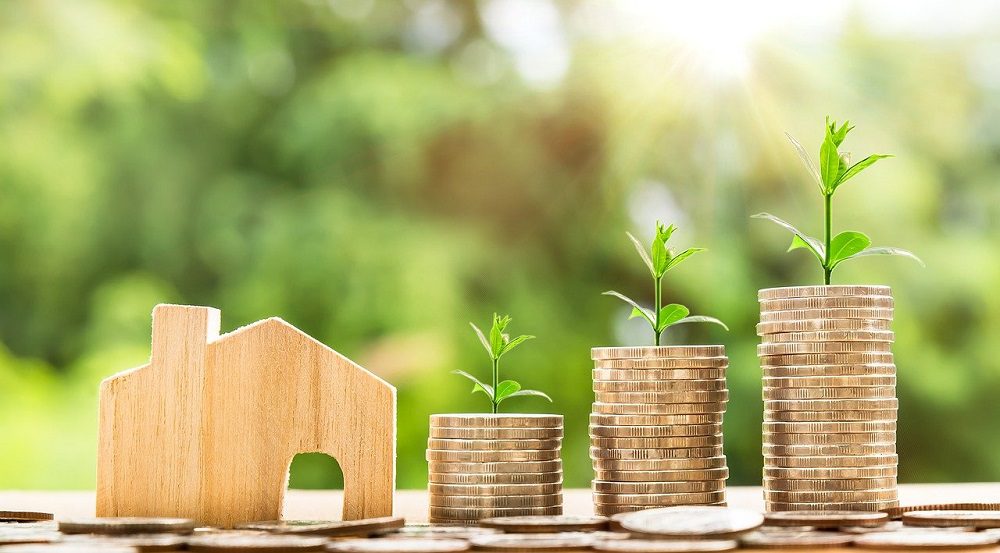If you are trying to increase your home value in order to sell it or increase your home’s equity, there are some terrific projects you can do to increase the value immediately. Other projects like solar panels increase the value of your home over a long time period.
There are also some upgrades that you should avoid. While you are considering which upgrades to do, keep in mind that making your house the nicest in the neighborhood will not necessarily increase the value.
Real estate appraisers look at all homes similar to yours in the neighborhood that have sold recently. Your house needs to fall within that price range in order for a buyer to qualify for a mortgage.
As you pick which projects to take on, think about the value to yourself, especially if you plan to stay in the house. Throughout this article, we talk about ROI. That stands for Return on Investment or how much of your investment you can expect to recoup when you sell them home.
Now, let’s look at ways to immediately increase your home’s value and which projects to avoid.
Attic Insulation

Attic insulation may not seem to be the most valuable improvement, but according to realtor.com, you will recoup more than 100% of your investment. If you plan to stay in your home, you will see immediate returns on lowered heating and cooling costs.
The return on investment for home insulation is huge! Shell out about $1500 but get back more than that in lower energy bills over ten years.
The Environmental Protection Agency estimates that home insulation can reduce energy consumption by 5% to 30%. If you have an older home, this could really boost your savings. This should help increase the value of your home. Even if you’re planning to sell your home, insulation will benefit the buyer.
Other Energy Savings

Your next project should be to upgrade anything that saves heating and cooling costs. Start with a programmable thermostat. In the long term, you will save money by not heating or cooling the house while you are gone or sleeping.
In addition, many can be connected to your smartphone. Set the temperatures to 68*F in the winter, with slightly lower temperatures while sleeping or away (up to 5*F lower). In the summer, set your thermostat to 78*F and increase the temps by up to 5*F when away. Use energy-efficient fans to move the air, creating the feeling of cool.
Next, as bulbs burn out, replace them with LED bulbs or replace entire fixtures with LED lighting. You will save money on your electricity bills and since buyers are asking for two years’ worth of electricity bills, keeping electricity costs down is important. LED lights are brighter at lower energy, an important factor for an aging population who need more light to see.
New windows are problematic. Yes, they are immediately effective in terms of saving heating and cooling costs. They are also extremely expensive and you recoup only 70 to 80% of the expense. If you plan to stay in the home for many years, try replacing one window at a time.
Keep in mind that energy-efficient windows lose efficiency over the years and may need to be replaced every 15 to 20 years.
Energy-efficient appliances, including the water heater, are other ways to decrease your energy costs and buyers will look more favorably on energy-efficient, stainless steel appliances over an avocado green relic from the 1970s.
Solar panels are increasingly popular. In the long run, you will save money on your electricity bills. In the short run, it costs between $11,000 and $15,000 (after tax credits) to install an average-sized house with solar panels. If you plan to stay in the house long term, it is definitely something to consider. The ROI over 25 years on solar can be more than 100%.
Now that you have increased your home’s energy efficiency, what are other ways you can increase your home’s value? Let’s take a look inside the home first.
Improvement Inside the Home

Kitchens are considered the heart of the house. Take a look at your kitchen and make some upgrades. Energy Star stainless steel appliances, a fresh coat of paint, brightened cabinets (especially if yours are dark), updated hardware, and new countertops will immediately improve your home’s resale value. An entire kitchen remodel may result in a 70% ROI, although you will lay out more than $25,000 to have it done.
If your carpets have seen better days, fresh carpeting, or even better hardwood or faux-wood floors immediately improve a home’s appearance. Generally, you will see a 3-5% increase in the value of your home with new flooring.
Another quick way to increase sales value is fresh paint. Choose neutral colors and focus on the high traffic areas. It won’t improve your home’s value in terms of equity, but it will sell faster and feel better.
Remodeling is a tricky proposition. According to realtor.com, bathroom additions and master suite additions have about 50% ROI. That is not much when you consider the cost – more than $40,000. Obviously, if you have a home with one bathroom, an additional bathroom may increase the value of your home immediately. Talk to a realtor – they know what people are looking for.
Consider opening your floor plan by removing walls. This will take a contractor to accomplish, but it may be worth the cost. Again, a realtor is your best bet for advice.
Finishing a basement or attic can add square footage. A dedicated office or playroom can definitely add value to a home. Losing garage space may actually decrease the value of your home.
Another way to increase value, especially if you live in an area with an aging population or you plan to age in place, is to move laundry facilities on the main floor, replace the tubs with showers, put in grab bars, and have a main floor bedroom.
Should you consider a home equity loan to remodel your home?
This really all depends on a variety of factors, including how much equity you have in your home, the type of remodeling you’re considering, and your credit score.
Generally speaking, home equity loans are a good way to finance a major home renovation because they offer relatively low-interest rates and the interest may be tax-deductible.
However, it’s important to weigh the pros and cons carefully before taking out a loan. For example, if you’re not confident that you’ll be able to repay the loan in a timely manner, or if you don’t have enough equity in your home, it might not be the right decision for you.
Also, if you have a low credit score due to unpaid debt, it might be difficult to qualify for a loan. You may want to consult a debt relief company first before applying for a loan. Make sure to choose a reputable debt relief company like Pacific Debt.
If you read the customer reviews from Pacific Debt, you’ll see that their debt relief program can help reduce your debt so you can start to improve your credit score and have a better chance of being approved for a debt consolidation loan.
Talk to a financial advisor about your specific situation to get advice.
Outside the Home or Curb Appeal
Head outside in both daylight and nighttime to see what your home looks like. If it is dark, dirty, or unappealing, potential buyers may not even set foot inside.
Many buyers will insist on a new roof if the existing one is older. Get an evaluation from a reputable roofing company. You may be able to update the roof and save on both energy costs and insurance premiums. If you live in a fire-prone area, a metal roof may decrease your insurance costs. Keep your roof up-to-date and avoid any structural damage inside the home.
Realtor.com suggests updating your home veneer (siding and covering the concrete foundation), updating the entry door to steel, and replacing the garage door as having good ROI.
Think about installing outdoor lighting. Solar porch lights and walk lights are fairly inexpensive and make a home seem much more welcoming (and secure) at night.
Fancy landscaping that involves a lot of work or water will not necessarily increase your home’s value. If you love to garden, go for it. If you want to add to your home’s resale value, just make certain your yards are clean and neat.
Adding a deck may or may not increase your home’s value. According to realtor.com, ROI on a deck is about 57%.
LOW ROI Projects
The home improvement projects with the worst ROI include pools with in-ground only adding 8& to the value and above ground pools decreasing the value by 1.5%. Hot tubs are another upgrade where you may lose money.
Sunrooms and home theaters are also a waste of money when it comes to resale value. If you desperately want one of those projects, do it because you will use it and not to increase your home’s value.
Our Take
If you are trying to increase the value of your home for resale, talk to a real estate agent in your area to see what buyers are looking for. Start with energy efficiency improvements. Solar powers can increase the value of your home, especially if you plan to stay in the home.
Small improvements in paint, indoor and outdoor lighting, and flooring can immediately, and relatively inexpensively, improve your home’s value. Large remodeling projects, swimming pools, and hot tubs may lose both money and resale value.


